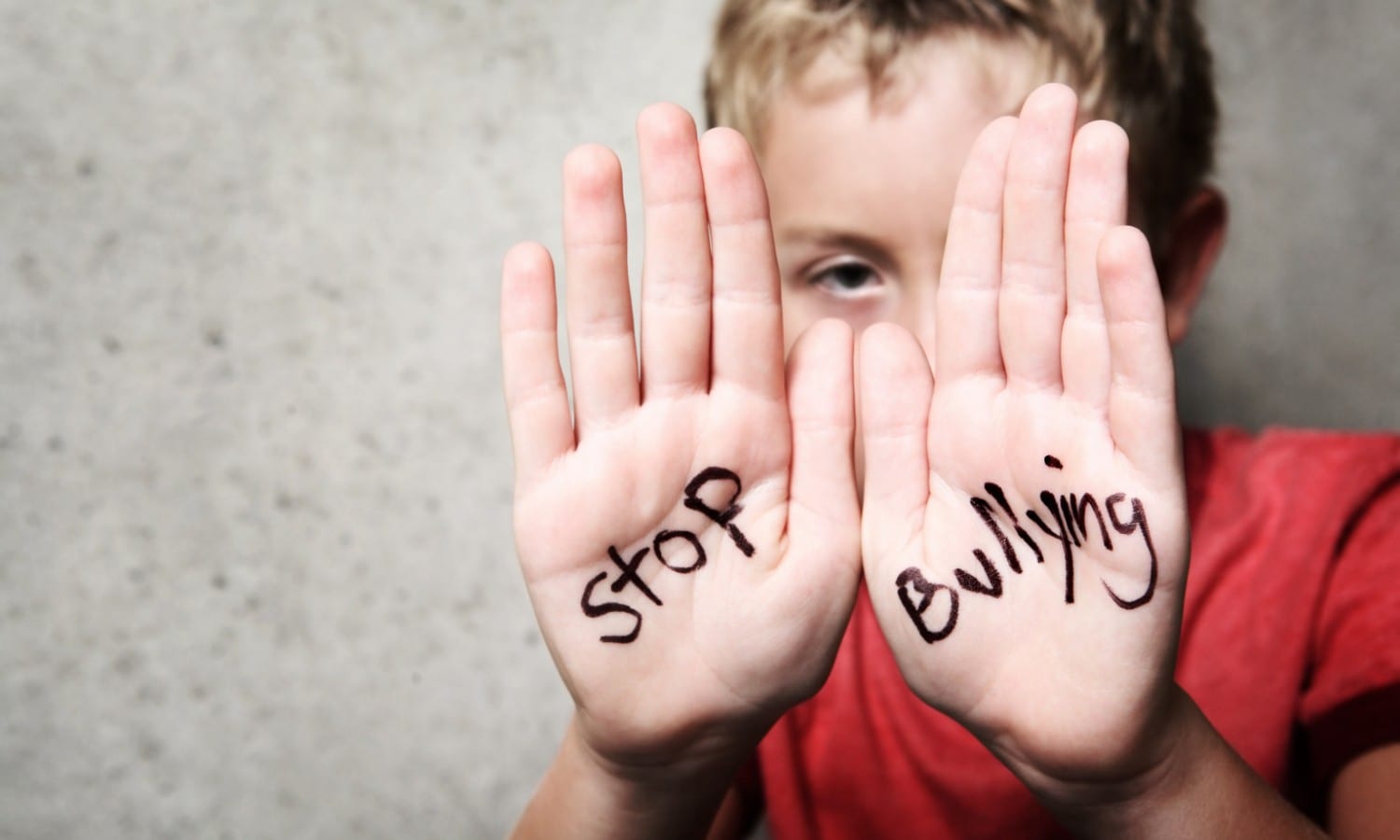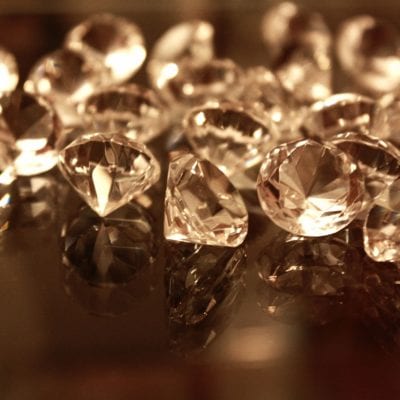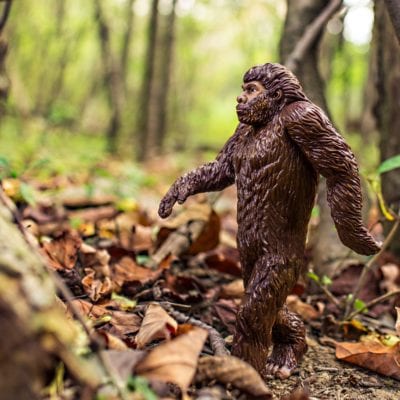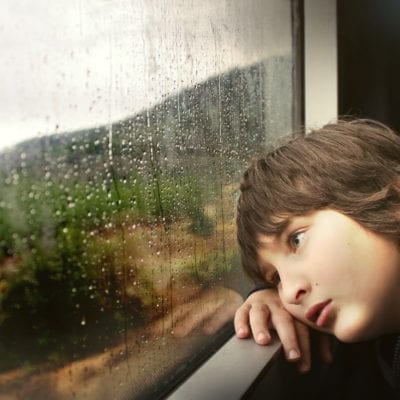How Bullying Stays With You
When I was eight my family moved from North Yorkshire to North Lincolnshire. A distance of about 30 miles. It was only recently, I realised, that I can’t actually remember much from that first year of the move. I’ve blocked it out, I think. I never realised until now, at the age of 33, how that move made me feel like I didn’t belong – and an experience I had soon after cemented that feeling.
It was a couple of years after our move, when I was in Year Five, that three girls revealed to me the cruelty of others (two of those girls shared the same forename… and I still today refuse to trust anyone with that same name). Anyway, our house was right next door to a park and they were yelling for me to come and play. I ignored them because I was busy in my front garden. I was also suspicious. They were girls who usually gave me a wide berth.
Eventually however, the trio decided to leave the park and head out of the gate, circle the park and make themselves welcome on my mum and dad’s property. The three of them proceeded to gang up on me. Believe me, I fought back. After doing very little damage except ruining my trust in the human race, they left my front garden, hightailing it back to whatever they called home. The three girls were once my friends (so I thought), but obviously they were not.
Growing up in the town that I did, many people commented on me seeming “posh”. Whether that was what earned me jealousy from others, I still don’t know. I do know lots of friends imagined my dad was “very posh” too when they saw him with silver hair and an intelligent demeanour.
It’s funny how I’ve kept in close touch with a girl I made friends with when I was five (at the old school) and yet, the friends I made at my new school, in the new town, are more casual acquaintances now than people who care about what’s going on in my life on a daily basis.
Children trust so easily, that when that trust is broken, it can never be rebuilt. Encountering the spite of others is one of the cruelest lessons of childhood because it’s not about circumstances outside of your control, it’s about people purposely going out of their way to harm you.
The life-changing experiences that happen to us at such a pertinent age, (particularly between the ages of seven and ten) stay with us always. But despite what people think, bullying doesn’t just happen to the young. It can affect us at any point in our life and in so many different forms.
For some people, harm shapes them. Harm cannot be eradicated; it can only be processed and left in the past.
I often consider how different my life would have been if I hadn’t met my husband. It was a university romance I suppose, but little did we know it at the time. Back then it was “just a bit of fun”, but meeting him changed my life.
As the years went by, we’d discover that all four of our parents had traumatic upbringings. This common ground has helped to explain why my husband and I share so many of the same beliefs and moral values. It’s funny how what started out as a fling of sorts had a basis in something solid, something intangible, something that would in some way help heal the wounds from years ago.

The girls who attacked me in my front yard were dealt with by a teacher I will never forget: Mr Hemmingway. They say that everyone remembers at least one teacher that changed their lives. Taught them to love art, or literature – me, I remember him because he was a knight in shining armour of sorts. I remember the hair that would stick out of his nose and ears and I will never forget his bushy eyebrows. But mostly I remember the day he stepped in during an incident that happened outside of school. He took those girls to task and I later found out it was because my dad told him what I was enduring behind closed doors.
Which makes me wonder – how many kids don’t have that bond with a parent? How many kids suffer in silence? How many never tell a soul?
I walk my daughter to school every day and often I’ll see a child with tears in their eyes, not wanting to go in through the school gates, a parent trying to coerce them inside. My jaded mind often conjures a bully waiting behind the bike sheds. But maybe it’s a spelling test they’re not prepared for? It could be anything really, because the pressures on our children these days are immense. But the protective side of me wants to help every child with tears in their eyes. Wants to ask them why they are scared and be their Mr Hemmingway. But I can’t save them all, can I? But I can help some of them break the cycle.
After having success with a charity book earlier this year (which raised mental health awareness), I didn’t have to think long and hard about which issue I would like to discuss next. As you can imagine, it was a no-brainer. But what I did think about really long and hard was how to convey the affect bullying can have on everyone at different times in life and through different forms. And so Break the Cycle : An Anthology was born.
I truly hoped that by writing Break the Cycle we could go some way to demonstrating the full spectrum of how bullying affects our society… and why.
My short story is from the point of view of a girl who was bullied as a child. Julianne was dirt poor and yet worked hard, clung to those that cared, especially her teachers – and became a teacher herself. Julianne features in a couple of my novels and embodies all the woes my parents and my husband’s parents went through as kids. But writing the stories made me realise that our pasts are not that dissimilar from many others. Maybe writing this all down will help others feel less alone.
I hope my words prove it is possible to break the cycle. Because as much as I do love writing (something coincidentally Mr Hemmingway said I was a natural at), I also want to really shake people up and make a difference.
Bullying is such an emotional topic, and one that touches all of us at some point in time – either directly or indirectly, and yet it is still an issue that is not tackled well enough. I just hope that the experiences I endured as a young child, and the ways and means in which I try to Break the Cycle will help others in some small way.
Break the Cycle benefits the NSPCC.
(Note from The Editor: We would like to thank Sarah for taking the time out to talk to us about what inspired her to write Break the Cycle. To read more about this influential and important book, please take a look at our book review here and to see more details on how you can get your own copy of the book. Or you can check out her author page here for more details, or find her on Facebook or Twitter.)








